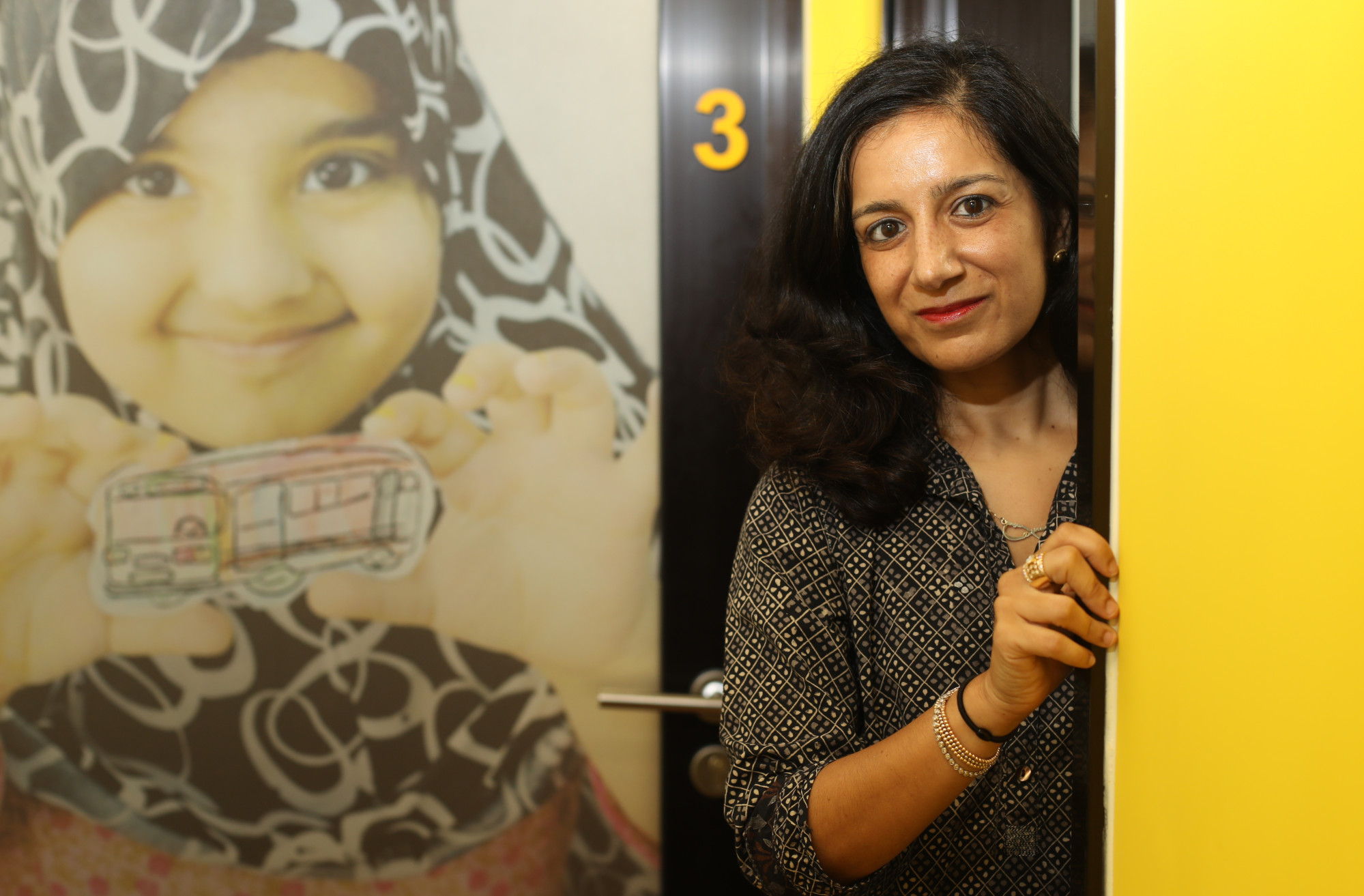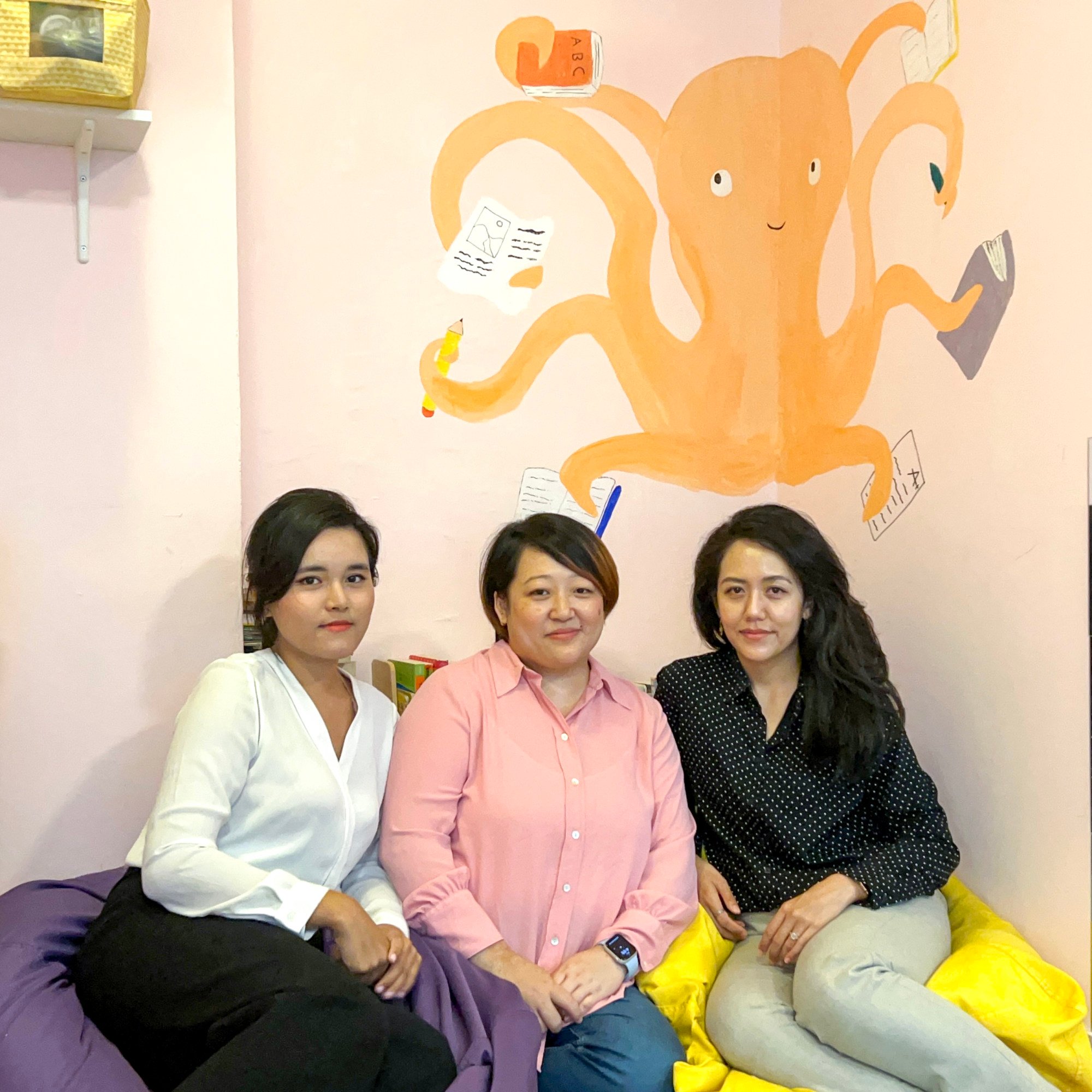But ever since Amar began attending the Kriti Children’s Centre for Learning and Development in Yau Ma Tei, his physical outbursts became less frequent, Thapa said.
“The sense of routine has helped and the extra learning opportunities mean he’s doing better in school,” she said.
‘Everything in Chinese’: Hong Kong’s ethnic minority students hit a wall
‘Everything in Chinese’: Hong Kong’s ethnic minority students hit a wall
Amar is among 900 ethnic minority students attending 62 public schools for pupils with special education needs (SEN). There is just one privately run school in the city for pupils with special needs.
SEN refers to a broad range of conditions, including visual, hearing, speech and language impairments, physical and cognitive disabilities, autism spectrum disorders, as well as attention-deficit/hyperactivity disorder and specific learning difficulties.
Shalini Mahtani, founder and CEO of the Zubin Foundation – an NGO that offers therapy for ethnic minority children with special needs – said the number of special needs students could be underestimated because of delayed detection and ineffective assessments.
“A lot of the time, there is a misconception that the child is either naughty or disengaged rather than having educational needs,” she said.

Mahtani added that this could be more prevalent with ethnic minority children, as some teachers stereotyped them as being more naughty than their Hong Kong counterparts, or attributed a lack of focus to difficulties in Chinese-based classes.
In Hong Kong, students with severe or multiple disabilities are referred to special schools, while other SEN students attend non-specialist schools.
About 60,960 special needs pupils were enrolled in government-funded primary and secondary schools in the 2022-23 academic year.
“If parents and teachers are better at noticing students with SEN, we can start therapy earlier and ensure that children with SEN can reach their full potential,” Mahtani said.
The NGO founder said teachers were usually the first to notice if a student displayed characteristics consistent with those who had special needs and spoke to parents before the child was referred for an assessment.
“But tests are happening in Chinese, Cantonese or English through a translator, which is just not as effective [for children from ethnic minority groups],” she said. “It is the same with [public] therapy, which is also very rarely in their native tongue.”
Hong Kong district poll hopefuls from ethnic minority groups call for diversity
Hong Kong district poll hopefuls from ethnic minority groups call for diversity
Mahtani said providing more government support to ethnic minority children with special needs in their preferred languages instead of relying on translators would help them to better integrate into the local community.
“We will start seeing more ethnic minority SEN people with higher academic skills, better literacy and so on,” she said. “This could lead to them getting better jobs and not depending entirely on government support.”
The Kriti Children’s Centre, an inclusive early childhood learning space for ethnic minority groups currently offers classes and therapy to about 40 children aged 10 and below. About 30 per cent of the youngsters have been diagnosed with or are suspected of having special needs.
The centre offers services for children that focus on developing their communication and social skills, as well as other areas that overlap with educational needs.

The charity is also tackling the stigma faced by those with special needs, particularly within ethnic minority communities in the city.
Looking back on her own experiences, Thapa said some of her peers had told her she must have done something wrong in a past life or eaten something bad during pregnancy when she mentioned her son had autism.
Gauri Limbu*, 32, also a stay-at-home mother from Nepal, said she had never heard of autism until her son Bikash* was diagnosed with the condition two years ago when he was three years old.
She said some members of her community had claimed that her son “just had delayed speech”.
Centre co-founder Divya Gurung, with more than 16 years of experience looking after those with special needs, attributed such comments to a lack of knowledge about autism and other conditions.
“In a lot of cases, there’s a lack of understanding in the community and because of religious or cultural reasons, there’s also a lot of guilt,” she said.
Hong Kong’s ethnic minority, special needs pupils look to the future after DSE exams
Hong Kong’s ethnic minority, special needs pupils look to the future after DSE exams
Gurung added that staff at the centre had hosted and attended information sessions to help raise awareness and encourage more families to get their children diagnosed.
“Even though the children might not be receiving services at the centre, parents are still interacting with us through workshops and seeking information,” she said.
Limbu said she had been bringing her son to the centre since his diagnosis and had benefited from staff advice, adding she was surprised by Bikash’s progress at school after he took up regular classes at the learning space.
“The therapist [at the Kriti Centre] gave some suggestions about how to stop his tantrums and make him focus and maintain eye contact, things he used to struggle a lot with,” she said.
“He is now able to focus for longer periods in both his public school and at the centre and finish tasks.”
*Names changed at interviewees’ request

